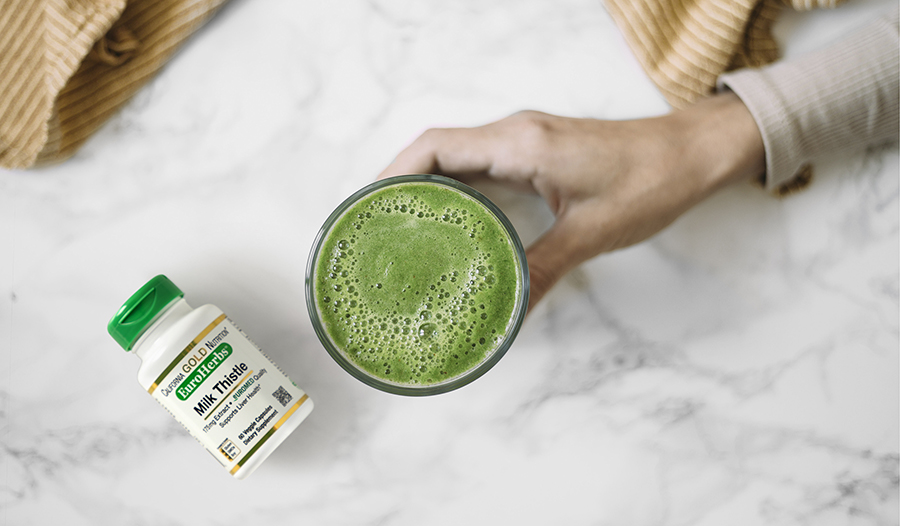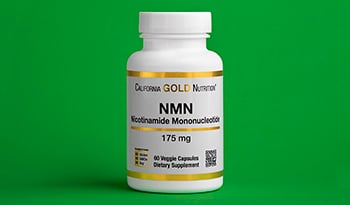9 Natural Supplements for Detoxing the Body

Humans are exposed to toxins on a daily basis. Chemical substances that are usually foreign to the body, toxins can cause harm to cells, organs, and overall health when present in intolerable amounts. They can come from the air we breathe and the water we drink — they can also be present in the foods we consume.
According to a 2017 study, “Persistent heavy metal pollution poses a major threat to all life forms in the environment due to its toxic effects”. Over the last 100 years, these heavy metals and other harmful chemicals have been used industrially and have found their way into our daily lives. Once ingested, these substances accumulate in our body, where they can result in short-term and long-term health problems.
What Are Toxins?
There are other more familiar toxins, like sugar and caffeine, to consider as well. As Paracelsus, the father of modern toxicology taught us, “The dose makes the poison.” This means that even commonly consumed substances can have toxic effects if consumed in excess.
Potential toxins include:
- Alcohol
- Caffeine
- Sugar
- Nicotine
- Prescription drugs
- Illegal drugs
- Food preservatives
- Pesticides
Alcohol
Alcohol is one of the most commonly consumed toxins. According to the World Health Organization, more than 3 million people die worldwide each year from the effects of alcohol. This represents more than one in 20 of all the world’s annual deaths. Alcohol is rapidly absorbed into our bloodstream to our stomach and acts as a depressant to the central nervous system. Our liver is the primary organ responsible for breaking down about 90 percent of alcohol consumed. The remainder will leave the body through urine, sweat, and even breathing. Excessive alcohol use can result in fatty liver, increasing the likelihood of developing cirrhosis of the liver.
Caffeine
Common caffeine sources include coffee, tea, and soda. For most people, one or two cups of coffee poses no problem and can even be beneficial. However, others may have a genetic variability that makes caffeine difficult to metabolize. For these individuals, even low caffeine consumption can result in anxiety, sleep disturbance, and sometimes rapid heart rate. It’s important to know your personal limits.
Sugar
Sugar is one of the most consumed and addictive substances in the world. Prior to the 1600s, sugar was rarely consumed, and when it was, it was a rare treat for the wealthy. Excessive intake of sugar and simple carbohydrates (which break down into sugar) increases the risk for diabetes, heart disease, stroke, high cholesterol, gout, and even Alzheimer’s disease. While sugar in moderation can be safe, alternatives include stevia, monk fruit, erythritol, and xylitol.
Nicotine
Nicotine intake occurs primarily via cigarettes and vaping devices. Tobacco use is one of the most habit-forming addictions in existence, and unfortunately, many cigarettes contain toxic chemicals such as arsenic and cadmium, another heavy metal. Cigarette use significantly increases the likelihood of dying approximately 10 years earlier and also significantly increases the likelihood of heart attack, stroke, and lung, and bladder disease.
Food Chemicals
Many processed foods contain chemicals that are added to help enhance taste and also improve overall shelf life. However, many of these ingredients are foreign to the human body and likely affect us in ways we are only beginning to learn. Consuming food in its natural state and avoiding processed foods that contain chemical-based ingredients is a smart approach. Eating organic fruits, vegetables, nuts, and seeds, along with hormone-free meats and poultry, are better options when possible.
Prescription Drugs
A prescription drug is really a toxin that doctors have learned to utilize therapeutically when given in small amounts. For example, a blood pressure medication at a too-large dose can result in blood pressure falling to a dangerously low level, but a smaller amount will lower blood pressure just enough to be beneficial and reduce the risk of heart attacks. Consuming a healthy diet and living an active lifestyle in many cases can help reduce the need for medications. However, many times medications are essential, and the body has mechanisms, mainly enacted by the liver, to help remove toxins from the body.
9 of the Best Body Detoxification Supplements
The following supplements are believed to be helpful for cleansing the body of toxins by many health experts:
1. Activated Charcoal
Commonly used in emergency rooms across the world as an antidote to the ingestion of toxic amounts of illegal or prescription drugs, charcoal is given in an attempt to minimize the number of toxins that are absorbed into the gut. In theory, it may also be useful in preventing toxins that may be absorbed through diet. Available in tablet or powder form.
2. Dandelion greens (Taraxacum spp)
A common flowering plant native to Eurasia and North America, this highly nutritious dandelion is rich in vitamins A, C, and K. It has both anti-inflammatory and antioxidant properties. Dandelion is also a good source of fiber and contains calcium, iron, and magnesium. It is also a natural diuretic that helps eliminate excess fluid that may be retained within the body.
A 2014 study in the International Journal of Food Sciences and Nutrition showed that dandelion could help facilitate the growth of lactobacillus and bifidobacteria, both beneficial bacteria for intestinal health. Dandelion can be consumed as a food, supplement, tincture, or herbal tea.
3. Green Tea
Green tea is one of the world’s most consumed drinks, second only to water and coffee. It is believed to have antioxidant effects that can help protect the body from oxidative damage caused by free radicals. The main bioactive component in green tea is a catechin, also known as epigallocatechin-3-gallate (EGCG).
A 2016 double-blind, randomized controlled placebo study showed that men and women with a non-alcoholic fatty liver saw a reduction of liver inflammation when compared to those given a placebo. The researchers concluded that green tea supplements could help those with a fatty liver disease. A healthy functioning liver is very important to remove toxins from the body.
Drinking two to three cups of green tea per day can also be considered to optimize health. Otherwise, a green supplement may be beneficial.
4. Probiotics
Probiotics are beneficial bacteria and, in some cases, beneficial yeast strains. Toxins enter the body when they are ingested through the intestines. Those with gut issues, like irritable bowel syndrome, chronic diarrhea, and bloating, commonly have a condition called leaky gut, which results in absorption issues. A poor intestinal barrier results in increased absorption of toxins and heavy metal, if present. We can optimize our gut health by eating healthy foods and by taking probiotics and prebiotics.
It has been estimated that the average human has about 10 trillion “human cells,” but that we also have close to 100 trillion beneficial, and sometimes not so beneficial, bacteria. This means that we have 10 times more bacterial and yeast cells in and on the human body than total human cells.
The majority of these beneficial bacteria are in the intestines while trillions more are found in the respiratory tract, genital tract, and on our skin, where they play an important protective role. These bacteria help provide protection and also carry out important metabolic processes.
Common strains of probiotics include lactobacillus, bifidobacteria, acidophilus, and the beneficial yeast saccharomyces boulardii.
Suggested dose: As directed on the label.
5. Psyllium Husk
Psyllium husk comes from the plantago ovata plant. The husk has been used in traditional medicine in areas of India and China for more than a thousand years. It is a common supplement used to help reduce high cholesterol and alleviate chronic constipation. Regular use also helps remove toxins from the gut that build up when one does not regularly evacuate. Available as a powder or in supplement form.
6. N-acetylcysteine (NAC)
N-acetylcysteine (NAC) can be very helpful in preventing excess oxidative damage to the liver. For those who regularly drink alcohol, or take prescription or over-the-counter drugs, like paracetamol (acetaminophen, Tylenol) on a regular basis, this daily supplement should be considered in my personal opinion.
According to a 2014 study in the British Journal of Nutrition, NAC could help protect the liver against oxidative damage. A 2016 study in Pharmaceutical Biology study also showed that NAC could help prevent inflammation and benefit those with a fatty liver, a condition common in those who consume excess alcohol, sugar, simple carbohydrates, and fast foods.
7. Milk Thistle
Milk thistle, whose active ingredient is silibinin, has been used for centuries for liver health. A 2013 study reported that milk thistle could help protect the liver against toxins and inflammation. It can be taken on its own or in addition to the NAC supplement.
Suggested dose: as directed on the label.
8. Spirulina
Spirulina is considered a superfood by many. It is an easily digestible nutritional supplement, which belongs to a family of blue-green algae and can be taken in a pill or powder form. Spirulina comes from a type of bacteria called cyanobacterium.
Spirulina can help detox the body from heavy metals. Arsenic, which is associated with increased risk for neurological disease and diabetes, can be removed from the body using spirulina’s health properties according to a study from India, where the water supply had high levels of arsenic.
9. Turmeric
Turmeric, also known as curcuma longa or Indian saffron, is a rooted plant of the ginger family, often consumed for its anti-inflammatory, antioxidant, and digestive-health properties. Curcumin, the primary molecule found in turmeric, is believed to provide many of the health benefits. While many people have used turmeric as a spice to enhance their food for over the past 4,000 years, turmeric has played an important role in medicine and anti-aging as well.
Turmeric can help prevent cellular oxidation, believed by many to be the main cause of the aging process, according to a 2016 report in Diseases. A 2017 study in Neural Regeneration
Research showed that turmeric helps also protect the nerve connections in the brain from inflammation and oxidative damage, both common after toxin exposure. Suggested dose: 500 to 2,000 mg per day if taken as a supplement or desired if added as a spice to food.
Lifestyle Practices for Detoxing the Body
One of the most important ways to ensure that the human body stays adept at eliminating toxic chemicals is to consume a healthy diet. Fresh fruits and vegetables provide an array of nutrients and antioxidants necessary to repair damaged cells.
Eat A Diet Rich in Antioxidants
A healthy diet rich in fresh fruits and vegetables provides us with not only the nutrients but also the antioxidants necessary to assist the body in eliminating toxic chemicals. Antioxidants can also help the body repair any cells that may have been inadvertently damaged throughout the process.
Ideally, purchasing and growing food that has little to no pesticides is best. Consuming pesticides can create an additional toxic burden to the body and inhibit its ability to eliminate harmful chemicals.
Vegetables such as cabbage, spinach, tomatoes, and lettuce are rich in important vitamins and minerals needed for detoxification.
The following foods can be helpful in aiding the body to detox:
- Acai berries
- Almonds
- Avocado oil
- Brown rice
- Coconut oil
- Cranberries
- Flaxseed oil
- Olive oil
- Pumpkin seeds
- Sesame seeds
Other vitamins and minerals that help detoxify the body include vitamin A, vitamin C, vitamin D, and vitamin E, along with magnesium, calcium, potassium, omega-3 fatty acids.
Fasting Can Help Remove Toxins
Fasting is a great way to help remove toxins from the body. Some will fast for 24 to 72 hours and consume only water during this time interval. This allows the body to focus on the removal of waste products. During this time, the body may enter ketosis, causing the phenomenon of autophagy (self-eating) to occur. Autophagy is the process in which the body breaks down “sick and damaged cells” and recycles the useful molecules for new cell regeneration.
Further, juice fasting or intermittent fasting are popular strategies chosen for body detoxification. More than adequate intake of vitamins, minerals, and antioxidants helps support what doctors call the phase 1 and phase 2 pathways of liver detoxification.
Bentonite Clay Can Help Detox the Skin
Bentonite clay is usually applied topically to the skin to help remove toxins and heavy metals. It is also believed that applying topically to wounds may help prevent and treat infections. Use as directed on the label.
Detox Your Body
Check out our best detoxifying and cleansing supplements to help rid your body of toxins and heavy metals it encounters every day!
References:
- Ayangbenro AS, Babalola OO. A New Strategy for Heavy Metal Polluted Environments: A Review of Microbial Biosorbents. Int J Environ Res Public Health. 2017;14(1):94. Published 2017 Jan 19. doi:10.3390/ijerph14010094
- Site accessed October 1, 2020 https://www.who.int/news-room/fact-sheets/detail/alcohol
- Isbister GK, Friberg LE, Stokes B, Buckley NA, Lee C, Gunja N, Brown SG, MacDonald E, Graudins A, Holdgate A, Duffull SB. Activated charcoal decreases the risk of QT prolongation after citalopram overdose. Ann Emerg Med. 2007 Nov;50(5):593-600, 600.e1-46. doi:10.1016/j.annemergmed.2007.03.009. Epub 2007 Aug 23. PMID: 17719135.
- Nutrition benefits of Dandelions accessed October 14, 2018 https://nutritiondata.self.com/facts/vegetables-and-vegetable-products/2441/2
- Int J Food Sci Nutr. 2014 Dec;65(8):977-80. doi: 10.3109/09637486.2014.945155. Epub 2014 Aug 4.
- Pezeshki A, Safi S, Feizi A, Askari G, Karami F. The Effect of Green Tea Extract Supplementation on Liver Enzymes in Patients with Nonalcoholic Fatty Liver Disease. Int J Prev Med. 2016 Feb 1;7:28. doi: 10.4103/2008-7802.173051. PMID: 26955458; PMCID: PMC4763469.
- Br J Nutr. 2014 Jan 14;111(1):46-54. doi: 10.1017/S0007114513002171. Epub 2013 Jul 8.
- Pharm Biol. 2016 Jul;54(7):1198-208. doi: 10.3109/13880209.2015.1060247. Epub 2015 Jul 1.
- J Vet Intern Med. 2013 Jan-Feb;27(1):10-6. doi: 10.1111/jvim.12002. Epub 2012 Nov 9. Milk thistle and its derivative compounds: a review of opportunities for treatment of liver disease.
- Clin Toxicol (Phila). 2006;44(2):135-41.
- Griffiths K, Aggarwal BB, Singh RB, Buttar HS, Wilson D, De Meester F. Food Antioxidants and Their Anti-Inflammatory Properties: A Potential Role in Cardiovascular Diseases and Cancer Prevention. Battino M, ed. Diseases. 2016;4(3):28. doi:10.3390/diseases4030028.
- Flores G. Curcuma longa L. extract improves the cortical neural connectivity during the aging process. Neural Regen Res. 2017;12(6):875–880. doi:10.4103/1673-5374.208542
DISCLAIMER:This Wellness Hub does not intend to provide diagnosis...
















































































 Table of Contents
Table of Contents















